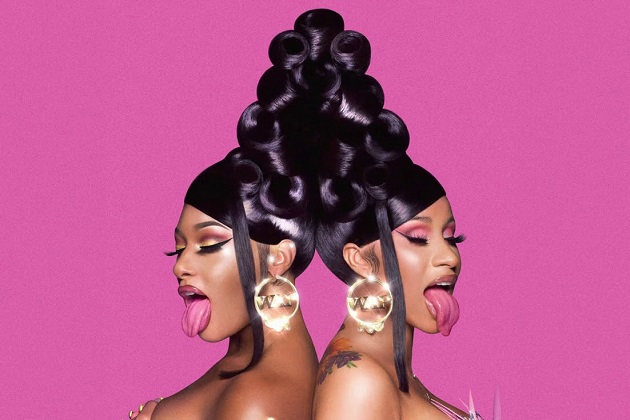(AllHipHop News) Whose responsibility is it really to critique women’s sexuality?
That is a question coming up over and over again since the dropping of Cardi B and Megan thee Stallion’s#### song, “WAP.”
Some people are quickly finding out that critiquing the song is tricky minefield, whether it appears to be an anthropological perspective, Judeo-Christian moral space, or just some patriarchal double-standard.
What is clear is that people like Russell Brand might want to keep their mouths shut on issues like this.
After releasing a 17-minute video where he unpacks feminism as it relates to the hyper-sexual song, he received backlash from those who accuse him of “mansplaining” his take on the performance.
He stated in his discussion, “If male Hip-Hop tropes are about the potency of male sexuality… and then the female video is a sort of celebration of sexual potency… it’s an emulation of a template that already exists and is established by males.”
He questioned his viewers if women “achieve equality by aspiring to and replicating the values that have been established by males…. Is it equality if the template has already been established by a formal dominator?”
However, instead of allowing space for reflection, he speaks through his white male privileged answered, “No.”
“I wouldn’t be so reductive and simplistic to say that women celebrating their bodies using an aesthetic that’s conventionally been associated with the male gaze means it’s impossible that these tools could be used as a vehicle for liberation,” he stated, but then proposed another perspective.
“But I am saying that, in a sense, it’s still the same metric — it’s still the same aesthetic, it’s still the same values, it’s still the same ideals. It’s still ultimately a sort of capitalist objectification and commodification of, in this case, the female.”
Women were not having it and took to social media.
Lol there is nothing more cliche than a white man sharing his opinion about whether a woman's feminism is valid when absolutely no one asked him in the first place.
— Kendall Brown (@kendallybrown) August 16, 2020
https://twitter.com/jenbren1976/status/1294573967768989696https://twitter.com/jenbren1976/status/1294573967768989696
What could have been helpful is if he had this conversation not in a vacuum, but with different people who could offer a more wide perspective on the topic.
